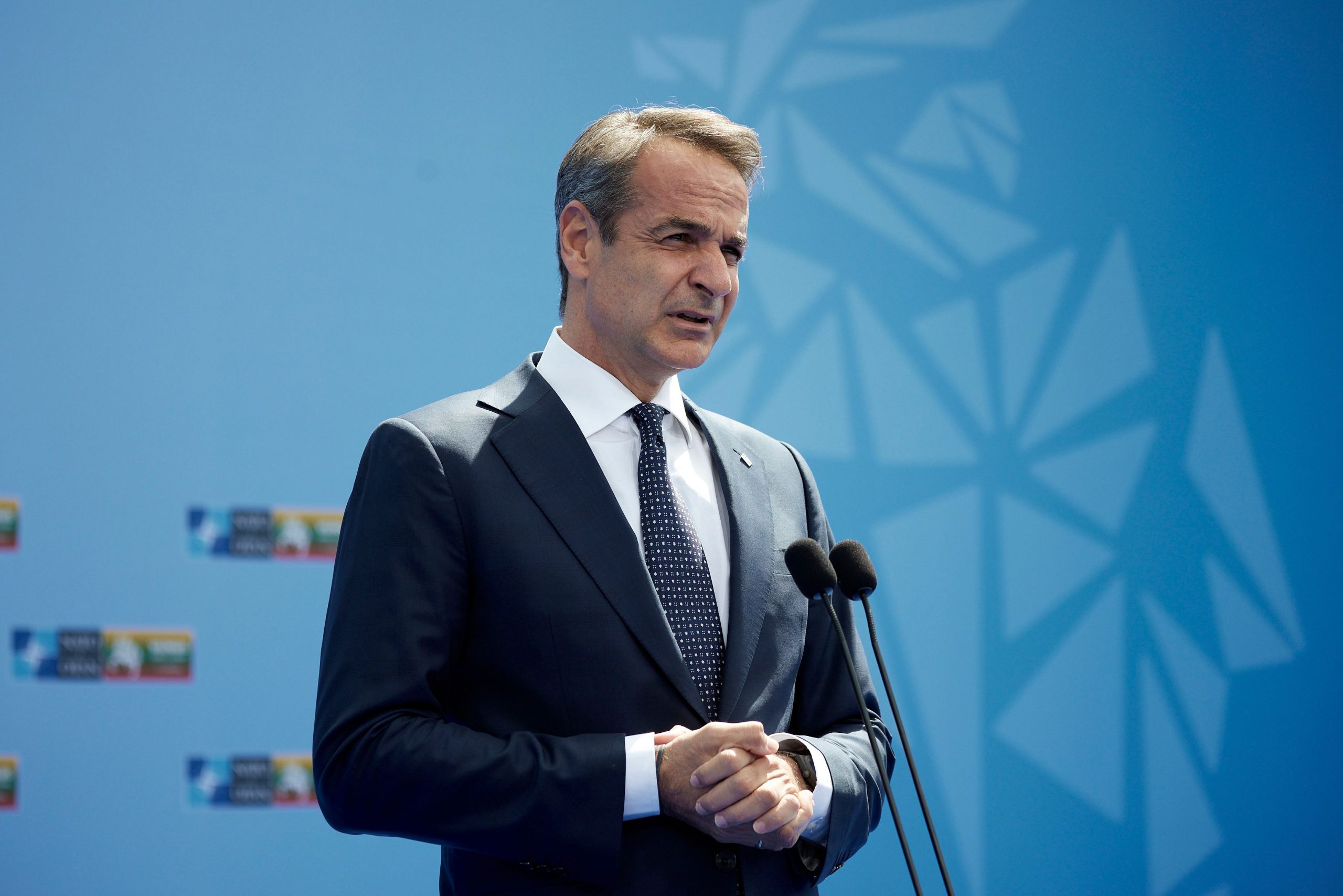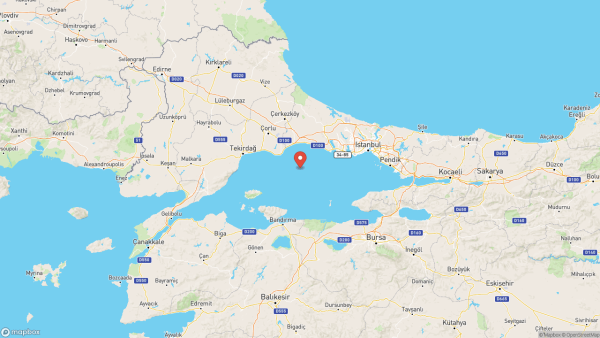
“We obviously have significant differences, but we can agree that based on good neighborly relations and respect for international law, we will draw up a road map so that we can resolve our geopolitical difference which is none other than the delimitation of maritime zones, i.e. EEZ and continental shelf, in the Aegean and the eastern Mediterranean”, said Prime Minister Kyriakos Mitsotakis while attending the NATO Summit in Vilnius.
A day before the planned four-four meeting with Turkish President Recep Tayyip Erdogan, the Greek Prime Minister underlined that we are not doomed to live with Turkey in a permanent climate of tension and added that “two with a strong popular mandate we can do a first step in restarting the relations between Greece and Turkey”. NATO Summit: Mitsotakis and Erdogan will meet on Wednesday
See Mitsotakis’ full statement
“We are meeting here in Vilnius as the Russian invasion of Ukraine rages on just a few hundred kilometers away. Consequently, the reaffirmation of the basic principles of the alliance is today more necessary than ever and I want to welcome the decision in principle of Turkey and President Erdogan to accept Sweden into the alliance and I wish very soon and officially that our friend Sweden will be the 32nd member of our alliance.
As you know, I will have the opportunity to meet tomorrow in person with President Erdogan in our first meeting after our double electoral victory. I believe that both with a strong popular mandate we can take a first step in restarting the relations between Greece and Turkey. As I have said many times, we are not doomed to live with Turkey in a permanent climate of tension. We obviously have significant differences, but we can agree that based on good neighborly relations and respect for international law, we will draw up a road map so that we can resolve our geopolitical difference which is none other than the delimitation of maritime zones, that is EEZ and continental shelf, in the Aegean and the eastern Mediterranean.
A positive climate has developed over the last few months in the relations between our two countries and I hope and look forward that we can build on this positive climate and make some important steps forward, steps forward which will obviously be to the benefit of both our peoples”.
Latest News

IMF: US Tariffs Shake Global Economy, Outlook Downbeat
IMF slashes global growth forecast to 2.8% as U.S. tariffs create uncertainty and ‘negative supply shock

First Step Towards New Audiovisual Industry Hub in Drama
The project is set to contribute to the further development of Greece’s film industry and establish Drama as an audiovisual hub in the region

Airbnb Greece – Initial CoS Ruling Deems Tax Circular Unlawful
The case reached the Council of State following annulment applications filed by the Panhellenic Federation of Property Owners (POMIDA)

Mitsotakis Unveils €1 Billion Plan for Housing, Pensioners, Public investments
Greek Prime Minister Kyriakos Mitsotakis has announced a new set of economic support measures, worth 1 billion euros, aiming to provide financial relief to citizens.

Alter Ego Ventures Invests in Pioneering Gaming Company ‘Couch Heroes’
Alter Ego Ventures' participation in the share capital of Couch Heroes marks yet another investment by the Alter Ego Media Group in innovative companies with a focus on technology.

Corruption Still Plagues Greece’s Driving Tests
While traffic accidents continue to claim lives on Greek roads daily, irregularities and under-the-table dealings in the training and testing of new drivers remain disturbingly widespread

Pope Francis Died of Stroke and Heart Failure Vatican Confirms
As news of the official cause of death spread, tributes poured in from across the globe. The 1.4 billion-member Catholic Church is united in grief, remembering a pope who championed inclusion, justice, and compassion

Increase in Both Museum Visits, Revenues for 2024
As expected, the Acropolis was the top archeological site in the country, followed by Sounion, Mycenae, the ancient theater of Epidaurus, and Vergina in northern Greece

Where Greece’s Tourists Come From: A Look at 2025’s Top Visitor Markets
The United Kingdom continues to hold the top spot as the largest source of incoming tourism, with 5.6 million seats booked for Greece this summer — up 2.2% from last year. This accounts for 20% of all international air traffic to Greece

Pope Francis: A Pontiff Who Reshaped the Papacy and Sparked a Global Conversation
His first words from the balcony of St. Peter’s Basilica—“Brothers and sisters, good evening”—set the tone for a pontificate that would challenge norms, favor mercy over dogma, and bring the papacy closer to the people.












![Πλημμύρες: Σημειώθηκαν σε επίπεδα ρεκόρ στην Ευρώπη το 2024 [γράφημα]](https://www.ot.gr/wp-content/uploads/2025/04/FLOOD_HUNGRY-90x90.jpg)



![Ξενοδοχεία: Μεγάλο το ενδιαφέρον για επενδύσεις στην Ελλάδα – Η θέση της Αθήνας [γραφήματα]](https://www.ot.gr/wp-content/uploads/2025/03/Athens-hotels-90x90.jpg)
























 Αριθμός Πιστοποίησης
Αριθμός Πιστοποίησης